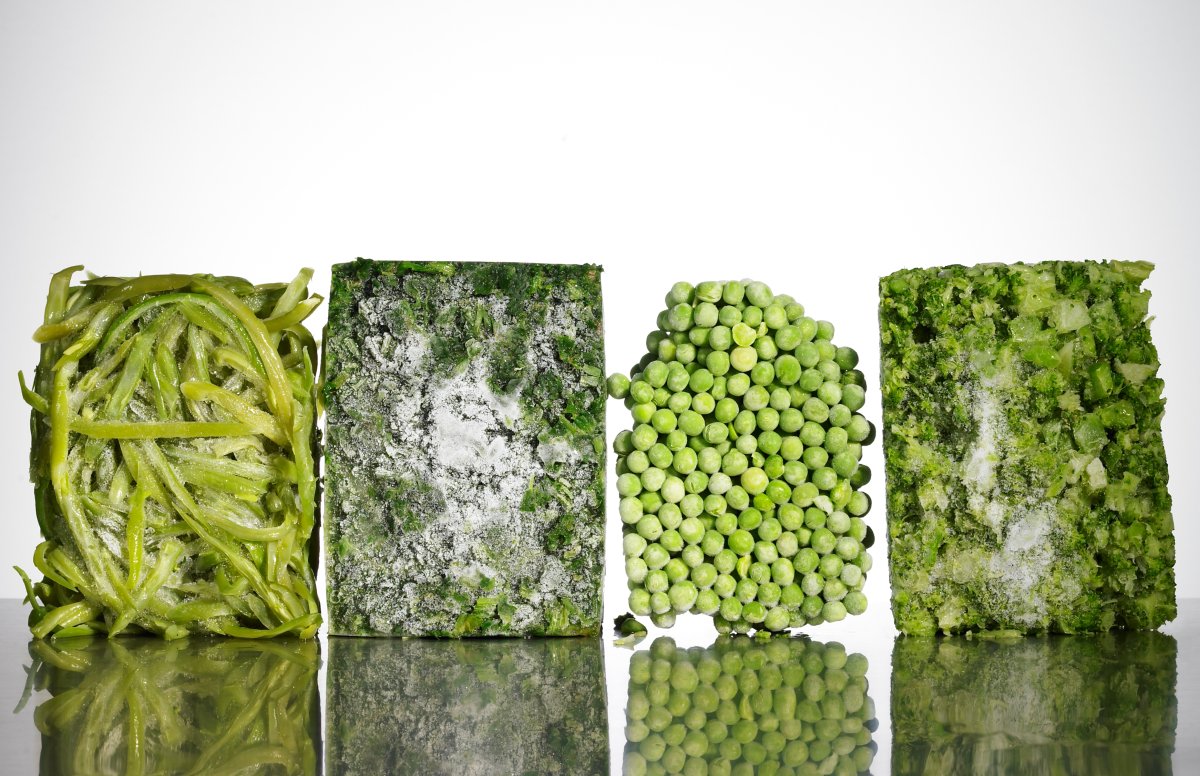It’s no secret that shopping for fruits and vegetables in the frozen aisle can significantly lower your grocery bill. The fresh stuff is more expensive and prices can spike if the Canadian dollar plunges or natural disasters hit key suppliers like California and Florida.

READ MORE: How much does a week of groceries cost in Canada? We crunched the numbers
But is eating frozen fruits and vegetables also better for your body in winter?
After all, things like fresh brussels sprouts, lettuce and berries often have a sickly look at this time of year. Not much will grow in Canada when temperatures take a dive, and almost everything else has to be hauled in from far-flung places.
“There’s a misconception that fresh is always best, which is certainly not the case,” said Jess Haines, associate professor in the department of family relations and applied nutrition at the University of Guelph.
WATCH: Global News has calculated how much an average family of four would have to make per week, and per year, to comfortably afford a healthy diet

Something that has been flash-frozen as it is harvested is preferable to something that’s out of season and has had to travel long distances, she added.
In general, frozen fruits and vegetables are nutritionally equal to their fresh cousins, according to Haines.
READ MORE: How much of your budget should you spend on groceries?
“There are slight losses in a few nutrients, such as folate and thiamin, with the flash-freezing process. But, this is relatively minimal,” she said.
Studies that compare the nutrient content of fresh and frozen vegetables and fruits found no consistent differences between the two.
Some frozen foods do show lower levels of certain vitamins. For example, frozen peas, carrots, and spinach are lower in beta carotene, which the body coverts to vitamin A, researchers at the University of California Davis (UC Davis) found.
READ MORE: How to save money on groceries every month
Broccoli, on the other hand, has higher levels of vitamin C when frozen rather than refrigerated, according to the same study. The opposite is true for peas.
“Overall, the vitamin content of the frozen commodities was comparable to, and occasionally higher than that of their fresh counterparts,” the authors conclude.
Another UC Davis study found that fresh peas shed over half of their vitamin C content just two days after harvesting.
WATCH: Canadians spend a lot on processed food and meat

How to consume frozen vegetables and fruits
The issue with frozen vegetables is that one has to cook them, according to Haines.
“There is a small concern about nutrient loss when you’re heating them,” she said. “But that holds for fresh vegetables, too.”
Still, that’s a small drawback compared to the ability to eat spring or summer vegetables that have been preserved as if they were in season.
READ MORE: 8 pantry staples that expire sooner than you think
The other issue with the frozen stuff is that many associate it with soggy, unappetizing food that is far less inviting than the crispy, crunchy stuff that’s fresh.
“You want frozen vegetables to be palatable,” Haines said.
“The trick is to cook from frozen for as short an amount of time as possible,” she told Global News. Steaming and microwaving will produce yummy results. Boiling at length not so much.
As to worries about the effect of showering your veggies with electromagnetic waves, “there is no evidence that suggests that microwaving vegetables causes larger nutrient losses,” Haines said.
Frozen fruit, on the other hand, should be thawed, either inside or outside your refrigerator.
READ MORE: Here’s a $50 grocery list for an entire week of healthy eating
“You can also microwave it, but need to be sure you turn the package a number of times so that you get an even thaw,” added Haines.
Alternatively, you can make yourself a frozen fruit smoothie. Unlike fruit juices, smoothies retain fruit’s fibre content.
“Fibre can help lead to increased feeling of fullness and can also cause the rise in blood sugar after eating to occur at a slower rate,” Haines said.






Comments